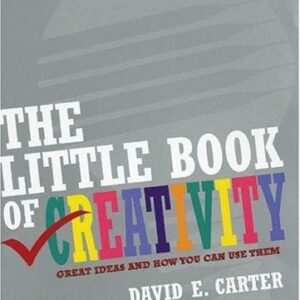Mindreader
$26.99
| Title | Range | Discount |
|---|---|---|
| Trade Discount | 5 + | 25% |
- Description
- Additional information
Description
Tired of guessing what they’re really thinking? Read people in every situation—in person, on a screen, or in writing—using the new science of psycholinguistics, from a New York Times bestselling author and consultant to the FBI, CIA, and NSA.
“A treasure trove of concepts, ideas, and tools that we can all master to be safer and happier. It’s a must-read!”—Joe Navarro, author of Dangerous Personalities
What did your boss mean in that email? Is your mechanic stretching the truth? Whether you’re engaged in a casual conversation or a high-stakes negotiation, it’s critical to understand the subtext of a situation. But with so much interaction happening on screens—via email, texts, or video chat—we are losing the ability to interpret expressions and cues. Furthermore, since many are now savvy about the meaning of body language, it’s become even harder to discern someone’s true thoughts or intentions.
A leading lie-detection expert who instructs the FBI and other security agencies, noted psychotherapist David Lieberman, PhD, takes “people reading” to a whole new level. Drawing on the latest research in psycholinguistics—the cues embedded in spoken and written speech—he shows you how to apply his cutting-edge methods to countless everyday situations, including:
• Detecting the messaging behind passive language, personal or impersonal descriptions, and level of detail.
• Determining whether someone’s account of any incident is the truth or a work of fiction.
• Finding out whether a potential hire, dating app match, or new babysitter is trustworthy or hiding something.
Nobody wants to be played a fool. Mindreader will help us identify who can be trusted, and who may be out to get us.“The more complicated human interaction becomes in a polarized world, the more essential it is to gain the means to penetrate the fog. Think of this book as your guide.”—Susan Carnicero, former CIA security specialist
“David Lieberman’s command of the nuances of language gives him extraordinarily keen insight into what’s really going on in a person’s head during everyday encounters. In this book he’s melded science and art to forge tools that will give you an enviable advantage over those who may be withholding the truth.”—Phil Houston, former CIA officer and senior member of the Office of Security
“It’s one thing to have proven expertise in a complex field, but quite another to have the skill to share it with a broad audience in an easily comprehensible way. David Lieberman’s remarkable ability to accomplish that is evident on every page of Mindreader.”—Michael Floyd, former officer at both the CIA and NSA
“David Lieberman provides a novel and practical approach to help you distinguish between perception and reality in any and all personal interactions. Mindreader is your key to cultivating healthy emotional intelligence, meaningful relationships, and success at home and the workplace.”—Mitchell Silk, former assistant secretary of the U.S. Department of the Treasury for International Markets
“Perceptive . . . readers will find [Lieberman’s] straightforward explanations logical and reasonable. This accessible pop psychology volume makes for a solid primer on getting into other people’s heads.”—Publishers Weekly
“Good clues for detecting lies but better insights into human nature.”—Kirkus ReviewsDavid J. Lieberman, PhD, is a renowned psychotherapist and the author of eleven books, including the New York Times bestsellers Get Anyone to Do Anything and Never Be Lied to Again. He has trained personnel in the U.S. military, the FBI, the CIA, and the NSA, and his instructional video is mandatory for psychological operations graduates. He teaches government negotiators, mental health professionals, and Fortune 100 executives, and has appeared as a guest on more than 300 television and radio programs, including the Today show, NPR, The Howard Stern Show, and The View.Chapter 1
What They Really Think
By paying close attention not only to what people say but also to how they say it—their language pattern and sentence structure—you can figure out what’s really going on inside their head. To demonstrate how this works, we begin with a quick and painless grammar lesson.
A personal pronoun, in the grammatical sense, is associated with a certain individual or group of individuals. It can be subjective, objective, or possessive, depending on usage. Grammatically speaking, when discussing a person or persons, there are three separate perspectives:
• First person (i.e., I, me, my, and mine or we, us, our, and ours)
• Second person (i.e., you, your, and yours)
• Third person (i.e., he, him, and his; she, her, and hers; and they, them, and theirs)
On the surface, it might seem as if pronouns simply replace nouns so that people don’t have to repeat the same words over and again. “John lost John’s wallet somewhere in John’s house” is not exactly an elegant sentence. “John lost his wallet somewhere in his house” just sounds better. But from a psycholinguistic standpoint, pronouns can reveal whether someone is trying to distance or altogether separate himself from his words. In much the same way that an unsophisticated liar might look away from you because eye contact increases intimacy and a person who is lying often feels a degree of guilt, a person making an untrue statement often seeks to subconsciously distance himself from his own words. The personal pronouns (e.g., I, me, mine, and my) indicate that a person is committed to and confident about his statement. Omitting personal pronouns from the action may signal someone’s reluctance to accept ownership of his words.
Let’s take the everyday example of giving a compliment. A woman who believes what she’s saying is more likely to use a personal pronoun—for instance, “I really liked your presentation,” or “I loved what you said in the meeting.” However, a person offering insincere flattery might choose to say “Nice presentation” or “Looks like you did a lot of research.” In the second case, she has removed herself from the equation entirely. Those in law enforcement are well acquainted with this principle and recognize when people are filing a false report about their car being stolen because they typically refer to it as “the car” or “that car” and not “my car” or “our car.” Of course, you can’t gauge a person’s honesty by a single sentence, but it’s the first clue.
A Distant Second
Even when a personal pronoun is present, a switch from active to passive voice may signify a lack of sincerity. The active voice is stronger and more directly interactive, revealing that the subject—the person or the people, in our examples—performs the action of the verb in the sentence. With the passive voice, the subject is acted upon by some other entity.
For example, “I gave her the pen” is in active voice, while “The pen was given to her by me” uses passive voice. Notice the shift in phrasing and how it subtly decreases the speaker’s personal responsibility. To wit, let’s say that two siblings are playing, and the younger one starts to cry. Most of the time, when mom or dad asks what’s going on, the reason the child is crying—as stated by the other child—is because “he fell,” “she got hurt,” or “he banged his head.” A child rarely says, “I did (action A) that caused (consequence B).” Indeed, it’s unusual for a child (the egocentric beings that they are) to assume responsibility and declare: “I pushed him into the wall, and he hit his head,” or “I should have been more careful when she climbed on my back.”
Let’s look at this in another context. In a study titled “Words That Cost You the Job Interview,” researchers assessed the interview language of hundreds of thousands of real-life job candidates. Based on language patterns alone, they successfully divided these candidates into low and high performers.1 Here’s what they found:
• High-performer answers contain roughly 60 percent more first-person pronouns (e.g., I, me, we).
• Low-performer answers contain about 400 percent more second-person pronouns (e.g., you, your).
• Low-performer answers contain about 90 percent more third-person pronouns (e.g., he, she, they).
High performers put themselves front and center in the action because they can call upon actual experiences. Low performers don’t. They can’t. They are more likely to give abstract or hypothetical answers, because they lack real-world experience and success.2
High-performer language: “I call my customers every month to see how they’re doing.” Or “I made two hundred calls every day at ABC Corp.”
Low-performer language: “Customers should be contacted regularly.” Or “You [or one] should always call the customer and ask them to share . . .”
When you take yourself out of the proverbial action, you send a concealed message (possibly even from yourself). Ask a child about her first day at camp, and note how the same summation reveals two different impressions of her experience: the first, more enthusiastic and the second, lackluster:
Response A: “I ate breakfast, then we went over to the park to play on the swings until I got to go swimming.”
Response B: “First, it was breakfast, then they moved us over to the park to play on the swings until they sent us to the swimming pool.”
The use of the passive tense or the absence of a pronoun also softens a message that may be ill received or confrontational. For example, one might excitedly proclaim, “We won the game!” but not “The game was won [by us]” because the active voice with a personal pronoun conveys solidarity with the message, thus invoking an assumption of pleasure and pride. Likewise, politicians tend to phrase reluctant admissions or apologies to dilute direct responsibility, including such gems as “Mistakes were made,” “The truth had some deficits,” and “The people deserve better.” The phraseology also hints to the character of the speaker. When your tailor informs you that “I made a mistake on your hem,” rather than, “A mistake was made,” we can surmise that he operates with a greater degree of honesty and integrity.3
The Great Divide
Distancing language assumes many shapes and sizes. Take a look at the following pairs of phrases and ask yourself which ones strike the chord of greater authenticity.
“I stand in awe” versus “I’m in awe.”
“I find myself filled with pride” versus “I am so proud.”
“I, for one, am glad” versus “I’m so glad.”
“I am a great admirer” versus “I greatly admire.”
The first phrasings are all attempts to imprint the message with an emotional intensity but fail in convincing the keen observer because of two linguistic giveaways. First, a heightened emotional state is associated with a simplified grammatical structure, not the more florid ones. Sincere, emotionally laden sentences are short and to the point. Think: “Help!” or “I love you.” Second, the speaker creates a separation between himself (the “I”) and the emotional sentiment. Which of these statements sounds more believable?
Statement A: “I’m so grateful that my wife was found alive. I’m indebted to all of the rescue workers.”
Statement B: “I, for one, am so grateful that my wife was found alive. I find myself indebted to all of the rescue workers.”
Statement A resonates as heartfelt while Statement B feels like a PR release. The second statement is not worrisome if the speaker has had time to compose himself and his thoughts. However, an impromptu, emotionally charged situation should exhibit a language pattern more consistent with Statement A.
At such times, clichés and metaphors are also highly suspect. A person using them in an attempt to portray himself as impassioned is trying to economically convey an emotion that is not real. Manufacturing emotion takes lot of mental energy, so the person uses borrowed phrases. For example, ask any trauma victim about what happened, and you will not get a Nietzschean quote such as “To live is to suffer; to survive is to find some meaning in the suffering” or a cliché such as “That’s the way the cookie crumbles.”
Certainly, with the passage of time and a shift in perspective, we may adopt a more philosophical view. Yet no one will ever convey an emotionally charged encounter by reciting the latest Pinterest quote on the beauty of suffering. Likewise, if someone proffers that a traumatic experience is “indelibly in my amygdala” (emotional memories are stored in this part of the brain), it reeks of inauthenticity. There needs to be emotional congruence.US
Additional information
| Dimensions | 0.8700 × 6.3800 × 9.5100 in |
|---|---|
| Imprint | |
| Format | |
| ISBN-13 | |
| ISBN-10 | |
| Author | |
| Audience | |
| BISAC | |
| Subjects | personality psychology, body language, poker, negotiation, communication skills, depression book, business communication, negotiation book, personality types, linguistics, borderline personality disorder, body language book, mindreader book, mindreader books, mindreading, subliminal, mind reader, mindreader, CIA, psychology, self help, relationships, PSY023000, social, PSY017000, communication, FBI, business book, social skills, self help books, personality, psychology books, psychotherapy, Trust, emotional intelligence, science books |










